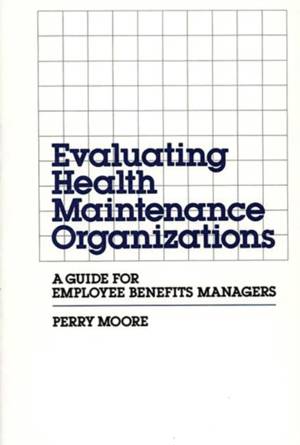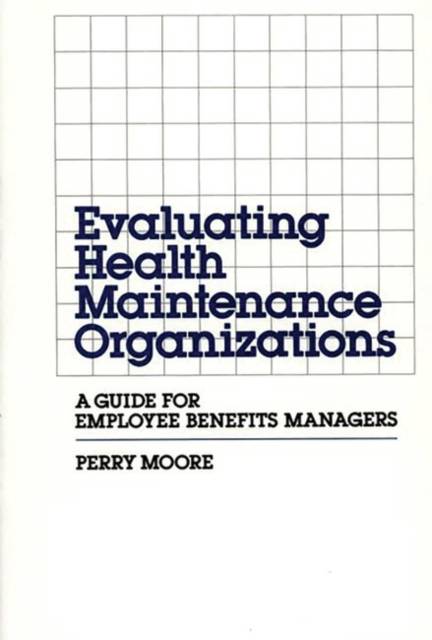
- Retrait gratuit dans votre magasin Club
- 7.000.000 titres dans notre catalogue
- Payer en toute sécurité
- Toujours un magasin près de chez vous
- Retrait gratuit dans votre magasin Club
- 7.000.0000 titres dans notre catalogue
- Payer en toute sécurité
- Toujours un magasin près de chez vous
Evaluating Health Maintenance Organizations
A Guide for Employee Benefits Managers
Perry MooreDescription
Rising health care costs consumed one-fifth of the economic growth in the United States between 1980 and 1987, and increased at a rate much greater than that of inflation. One of the ways in which the country is seeking to control these costs is through health maintenance organizations. With their emphasis on prepayment for comprehensive medical care, and their use of risk-sharing with providers, they represent a distinct change from traditional fee-for-service medicine. This book examines the growth and development of HMOs over the past two decades, detailing the success that they have had in controlling costs, and assesses the quality of care they provide to their 33 million current enrollees.
Perry Moore begins his study with a brief survey of the health care crisis and HMOs, covering such topics as regulation versus competition and decreasing patient satisfaction. He then presents a detailed history of HMOs and a look into their future, an analysis of utilization and costs in these organizations, and an assessment of the quality of care provided. Subsequent chapters examine the interaction between HMOs and employers, physicians, pharmacists, Medicaid, and Medicare; the particular problems that are faced by HMOs in rural areas; the characteristics of preferred provider organizations and how they compare with HMOs; and issues of managed competition and cost containment as they will affect the future of HMOs. This timely work will be a most valuable reference source for professionals in human resources and benefits management, as well as for students in these and related fields.Spécifications
Parties prenantes
- Auteur(s) :
- Editeur:
Contenu
- Nombre de pages :
- 208
- Langue:
- Anglais
Caractéristiques
- EAN:
- 9780899305578
- Date de parution :
- 26-08-91
- Format:
- Livre relié
- Format numérique:
- Genaaid
- Dimensions :
- 156 mm x 234 mm
- Poids :
- 467 g

Les avis
Nous publions uniquement les avis qui respectent les conditions requises. Consultez nos conditions pour les avis.






